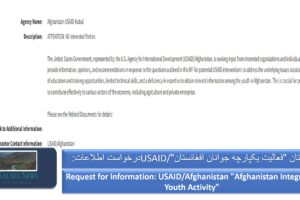Lack of knowledge about the laws in any country can potentially lead to difficulties for individuals residing there, including Afghans living in the United States and European countries. It is important for all immigrants to familiarize themselves with the laws and regulations of the country they are residing in, as well as their rights and responsibilities as residents.
In the case of Afghans who have come to the United States in recent years, it is crucial for them to understand the legal framework, immigration laws, family laws, and their rights as immigrants. This includes knowing the process and requirements for obtaining visas or residency permits, as well as any specific laws or policies that may apply to their situation. Lack of knowledge in these areas can result in unintended violations of laws, leading to potential legal issues or difficulties with their immigration status.
The instruction that refugees, SIVs, and evacuees receive in resettlement agency-provided cultural orientation lessons is not enough. Mr. H.M., who gave permission to use his initials in this article, spoke to Kauser News about his experience. He mentioned that when he came to the United States, he had “over 200 questions.” However, during the orientation class, he only learned about topics such as filing taxes, obtaining a driver’s license, calling 911, avoiding violence, finding a job, and using EBT or food stamps.
While these relatively brief orientation lessons are helpful, they are not wide enough in scope to facilitate a sufficient understanding of the many U.S. laws that impact daily life. Mr. H.M. emphasized that he has worked with Americans for over 12 years and speaks English well, which helped him learn about U.S. laws. However, he raises a valid concern about individuals who may have educational difficulties, lack formal education, or lack experience with Americans and American culture. He specifically mentioned that some people may be unable to write their own names in their native language, such as Dari, much less do their own independent research on laws.
Ms. Shanaz, an Afghan female evacuee, shared her experiences with Kauser News. She mentioned that she was a teacher in Afghanistan and had worked with the Afghan government at the Ministry of Culture. When she fled Kabul and arrived at the airport on August 28, 2021, she had hoped for a new life without troubles in the United States. However, after seven months, she realized that she had little knowledge about the USA and that the cultural orientation she received was insufficient.
Ms. Shanaz discovered that many practices that were common in Afghanistan, approximately 75% of them she says, are not allowed in the United States or in California. She personally witnessed problems and challenges arising from these differences. She also questioned why government officials were not aware of these issues, speculating that it may be because the affected individuals are not reporting them to law enforcement. These observations highlight the difficulties faced by Afghans who find themselves in unfamiliar cultural and legal contexts. They demonstrate the need for more comprehensive support and orientation programs to ensure a smoother transition and integration into their new lives in the United States.
It is important for resettlement agencies, local communities, and government officials to be aware of the unique challenges faced by Afghan refugees and to provide appropriate resources and assistance to address their specific needs. The suggestion made by the two Afghan immigrants we interviewed to provide a 60-hour cultural orientation class to Afghan individuals who have arrive in California is an important consideration. Such an extended program could offer a more functional understanding of cultural norms, societal expectations, and legal frameworks in the United States.
Implementing a 60-hour cultural orientation class would require coordination among local authorities, resettlement agencies, and community organizations. This is just one suggested solution to an issue that warrants full examination and exploration of other possible solutions that consider the diverse needs and backgrounds of the Afghan population in the United States. Individuals with educational challenges or limited education may face additional barriers in understanding and navigating United States laws and systems. Providing accessible resources, language support, and tailored assistance can help bridge these gaps and ensure that everyone has a fair opportunity to comprehend and adhere to the law. By investing in comprehensive cultural orientation initiatives, local communities can enhance the integration process and empower Afghan individuals to navigate their new lives with a better understanding of their rights and responsibilities, leading to smoother transitions and increased opportunities for their long-term success.
The experiences and challenges described above are similarly experienced by Afghans who have resettled in European countries, and an understanding of laws is equally important wherever they live. Residents need to understand the local laws and regulations, including those pertaining to immigration, employment, housing, and other relevant areas. This knowledge can help them navigate their daily lives, access necessary services, and avoid any inadvertent violations that may have legal consequences.
Afghans living in the U.S.A or European countries should seek information and resources from reliable sources as much as they are able. This may include consulting with immigration lawyers, local community organizations, or government agencies that specialize in immigrant affairs. These resources can provide valuable guidance on legal matters, rights, and responsibilities.
Note: Kauser News reached out to Sacramento resettlement agencies for their comment. Their comments will be shared in the future as they are received.




